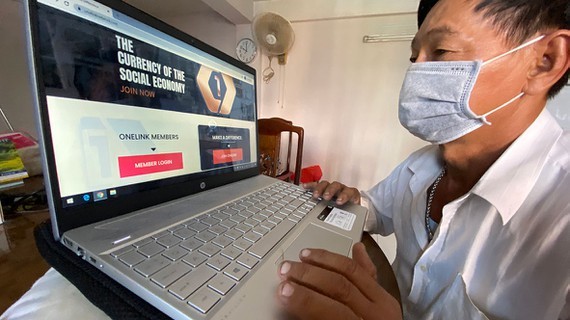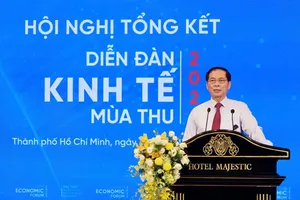
Most online shopping websites and apps surveyed by the Department that use cashback as a marketing gimmick promise an 80 to 100% discount or cashback for both the buyer and service provider.
Such values, however, are only the amount returned on the services’ internal point systems, while actual cash returns only amount to 0.05 to 0,1% per day.
The point accumulation mechanics of these sites and applications often involves virtual currencies or e-wallets with no real-life value and not recognized as a means of transaction by Vietnamese law. As a result, users that get involved in financial disputes with these service providers are not protected by the law.
What’s more, the Department of Competition and Consumer Protection found that many such cashback websites and apps are not transparent with their operation and show signs of illegal pyramid schemes.
These financial models are very common on community sites like YouTube and popular social networks in Vietnam like Facebook, Zalo or Viber.
They are often labeled the play fields for entrepreneurs looking to trade and share investment opportunities via cryptocurrencies, e-commerce exchanges, decentralized social networks, digital ecosystems or affiliate marketing models.
These providers usually advertise aggressively towards young people as “pioneers of the 4.0 era”, offer high commission rates and urged them to invest for memberships.
However, participants’ business returns or investment results are not recorded on any official document except their online account. Paid users are not granted certificates or confirmations from a legal entity under Vietnamese standing laws.
As such, the Department of Competition and Consumer Protection warns citizens against investing or start building a business in affiliation with similar projects to avoid legal risks.
The Department have found a few suspicious websites that are enticing customers to buy their shares, namely Onelinknetwork.com, ChiliMall.net, Vitae.co, Crowd1.com, Tcapital.org, just to name a few.
Organizations and individuals practicing pyramid marketing without a certificate may face criminal charges and be fined up to VND5 billion (about US$216,000) or serve 5 years in prison, according to Article 217a of the 2015 Penal Code amended in 2017.
























